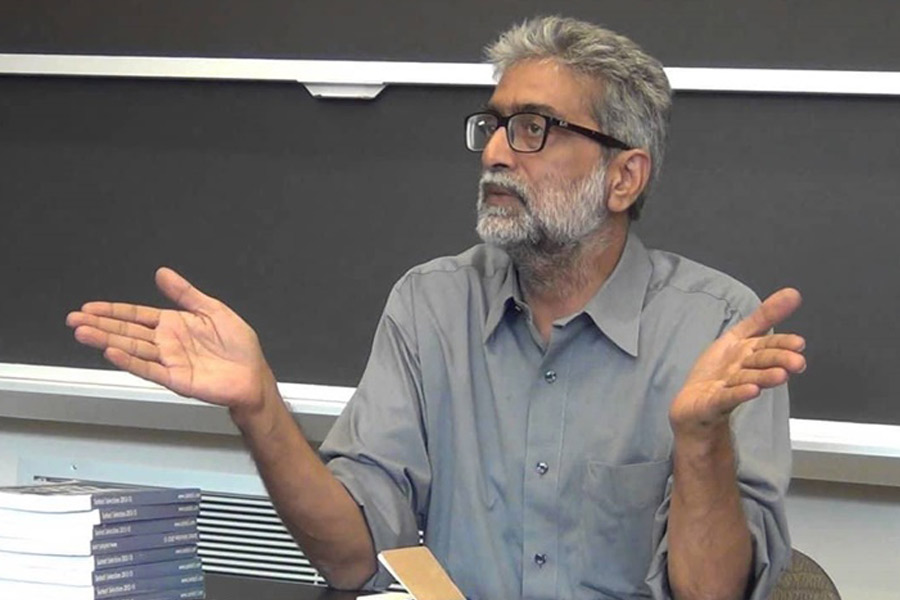The Supreme Court on Tuesday said activist Gautam Navlakha, arrested by the NIA in the Elgar Parishad-Maoist links case, has the “liability” to bear the expense for availing himself of house arrest.
However, the apex court granted him time till April 23 to determine the amount he would be willing to pay for his security costs. The NIA has claimed Rs 1.64 crore as dues, but Navlakha has disputed the figure.
“If you have sought for it (house arrest), you have to pay. The liability you know you cannot escape because you asked for it. If you have sought for it, you have to pay,” a bench of Justices M.M. Sundresh and S.V.N. Bhatti told advocate Shadan Farasat, appearing for the 70-year-old activist.
“As long as you (Navlakha) continue to have this facility the figures are going to fly higher and higher,” Justice Bhatti said while adjourning the matter till April 23.
In India, there is no statutory concept of house arrest but given his health conditions and advanced age, the apex court had in November 2022 directed that Navlakha be kept under house arrest.
The NIA, represented by additional solicitor-general S.V. Raju, had told the court that the agency had spent Rs 1.64 crore towards the maintenance cost of Navlakha’s house arrest.
The anti-terror agency had claimed that Navlakha owed the money for round-the-clock security and surveillance.
Farasat disputed the amount quoted by the NIA but assured the court that Navlakha was willing to pay the cost if it was calculated properly.
The court allowed the NIA and Navlakha to come out with their calculations so that the bench could pass its order on the next date of hearing.
The court is dealing with an appeal filed by the NIA challenging the bail granted to Navlakha by Bombay High Court in December and a plea by the activist to be shifted to a different building in Mumbai.
Navlakha is currently staying at a public library following the apex court’s interim stay on the bail granted to him by the high court.
On September 1 last year, the apex court had found fault with its own order by which it had permitted Navlakha’s house arrest, saying such an order “might set a wrong precedent”.
“Prima facie we have our own reservations, but a lengthy order had been passed earlier by this court. Without going into the merits of the case, this type of order might set a wrong precedent. You (Navlakha) may have 100 per cent merit in the case. We are not saying anything about that,” the court had said.
The earlier bench of Justices K.M. Joseph (since retired) and Hrishikesh Roy had in November 2022 ordered that the activist be kept under house arrest instead of being sent to judicial custody because of his advanced age and medical problems.











